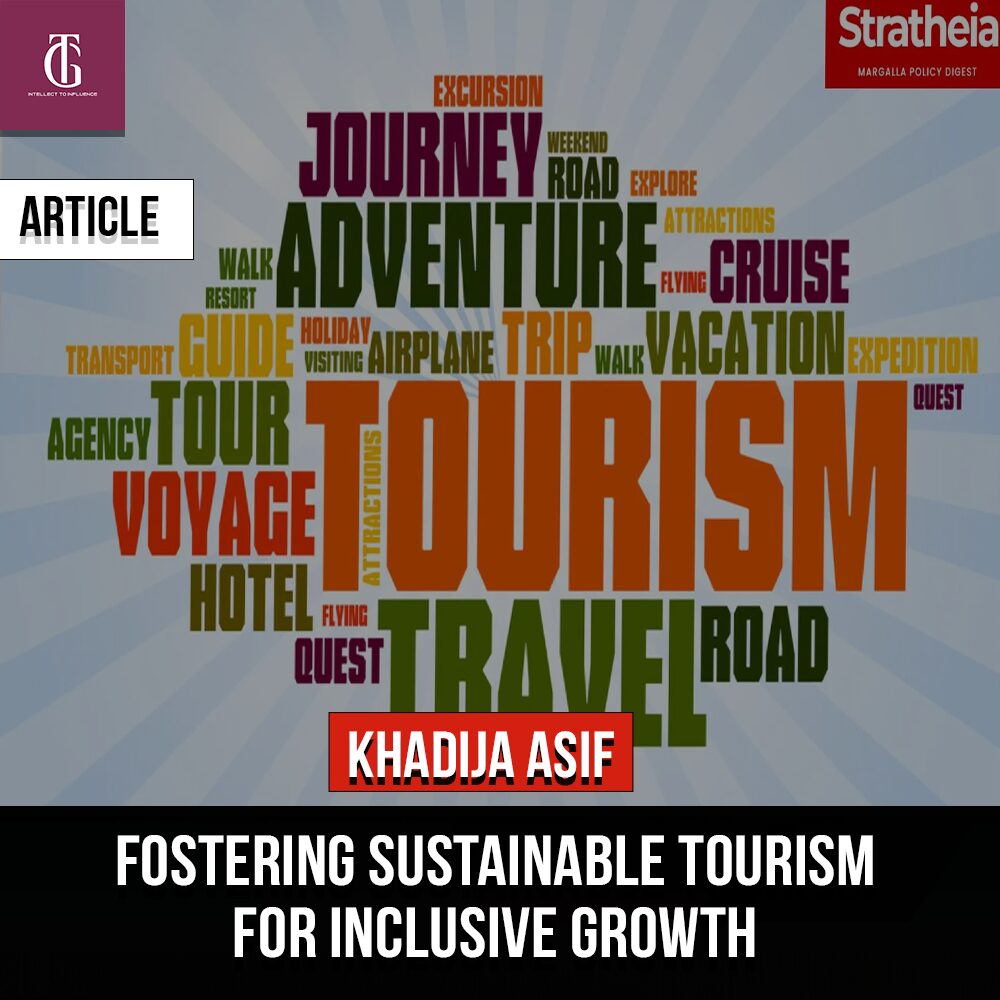
In the realm of responsible and sustainable tourism, epitomized by the overarching theme of “Tourism for Inclusive Growth,” lies an imperative for every facet of the tourism sector to contribute proactively towards shaping its trajectory. This inclusive approach must encompass communities, minorities, youth, and vulnerable demographics, safeguarding them from the perils of marginalization.
Tourism stands as a cornerstone of the contemporary global economy, heralding unprecedented growth and vitality. As a catalyst for sustainable socio-economic development, the tourism industry wields substantial influence on a global scale. Its potential to bolster gross domestic product (GDP) and foster employment opportunities, whether in developed or developing nations, is unmistakable. Moreover, tourism emerges as a pivotal pillar of the Sustainable Development Goals (SDGs), notably Goals 1 (eradicating poverty), 5 (advancing gender equality), 8 (promoting decent work and economic growth), and 10 (reducing inequalities).
At the heart of sustainable tourism lies a fundamental premise: to explore destinations without compromising the integrity of local communities and ecosystems, while concurrently fostering constructive contributions for environmental and societal well-being, alongside economic prosperity. Encompassing various facets such as transportation, accommodation, leisure, and gastronomy, tourism extends its purview to encompass recreational, business, familial, and social travel.
Across many nations, tourism remains a linchpin for both formal and informal employment, serving as a vital conduit for income generation across generations. For developing countries like Pakistan, the potential for tourism to engender substantial foreign exchange reserves presents a compelling opportunity for sustainable growth and development.
The annals of global economic development bear testament to instances where tourism has engendered profound positive impacts on socio-economic trajectories. Nations like Mauritius, South Africa, Maldives, Croatia, and others have harnessed the transformative potential of tourism to invigorate their economies. Pakistan, endowed with a myriad of natural and cultural treasures, possesses the requisite ingredients to emerge as a formidable tourist destination, thereby leveraging the tourism industry as a potent driver of economic prosperity and poverty alleviation.
In South Asia, the tourism sector serves as a robust engine of economic progress and GDP augmentation. The Maldives stands as a paradigmatic exemplar, where astute leveraging of tourism potential has propelled socio-economic development and bolstered foreign exchange reserves. Conversely, economic expansion in developed nations catalyzes business travel, thereby augmenting overseas reserves.
Pakistan, in its nascent years post-independence, burgeoned as a beacon of tourism, boasting a diverse tapestry of attractions ranging from towering mountains and azure lakes to verdant landscapes and ancient civilizations. Yet, the advent of geopolitical tumult, epitomized by the Soviet invasion of Afghanistan in 1979, precipitated a regression in progressive development. Consequently, an aura of fundamentalism and extremism cloaked the nation, stifling its innate spirit of tolerance and moderation, and casting a pall over its tourism potential.
The COVID-19 pandemic wrought havoc upon global economies, disproportionately impacting marginalized segments and vulnerable cohorts. Despite travel restrictions, the resilience of the tourism sector remained palpable, underscoring its capacity to weather adversities. However, Pakistan’s tourism narrative pales in comparison to its regional counterparts, beset by myriad challenges hindering its full realization of tourism potential.
The Himalayan and Hindukush regions of Pakistan embody a veritable treasure trove of natural splendors, socio-economic diversity, and historical legacies, constituting a rare confluence of attractions. Yet, impediments thwarting the growth of the tourism sector necessitate meticulous scrutiny and concerted stakeholder engagement, encompassing both public and private spheres.
Decades of instability in Afghanistan and terrorist onslaughts have cast a shadow over Pakistan’s tourism landscape, tarnishing its image as a safe haven for visitors. Negative travel advisories and infrastructural deficiencies, compounded by visa restrictions and bureaucratic hurdles, further impede tourist influx. The amplification of Pakistan’s political and security challenges by Western media exacerbates the situation, perpetuating misperceptions and dissuading potential tourists.
Amidst these challenges, pockets of resilience emerge, epitomized by the enduring allure of Pakistan’s Northern areas for hikers and mountaineers. Moreover, the burgeoning trend of domestic tourism, particularly in the wake of COVID-19 restrictions, underscores a nascent optimism. However, concerted efforts are imperative to harness this potential fully and cultivate a conducive environment for tourism proliferation.
To alleviate poverty and elevate living standards, a paradigm shift in Pakistan’s tourism narrative is imperative, necessitating international promotion and strategic recalibration. The facilitation of infrastructural development, provision of incentives to tourism stakeholders, and enhancement of visitor experiences through modern amenities and services are pivotal. Additionally, fostering a culture of inclusivity, political stability, and robust security frameworks are indispensable requisites for sustainable tourism growth.
The prevailing societal malaises, exemplified by intolerance and cultural insularity, necessitate redressal to foster an environment conducive to tourism. Drawing inspiration from Muslim-majority nations like the Maldives, UAE, Malaysia, and Indonesia, Pakistan can emulate tourism models tailored to its cultural and religious sensitivities, thereby amplifying its tourist appeal.
While the Northern areas beckon with their rugged grandeur, the untapped potential of Pakistan’s coastal regions and desert landscapes remains a latent opportunity. Comprehensive planning, investment, and proactive government policies are indispensable prerequisites for unleashing Pakistan’s tourism potential across diverse terrains.
In conclusion, a concerted and multi-pronged approach, underpinned by stakeholder collaboration and strategic foresight, is imperative for rejuvenating Pakistan’s tourism sector. Anything less than a holistic and resolute endeavor risks squandering the nation’s rich tourism legacy and depriving future generations of its myriad splendors.

Khadija Asif
Khadija Asif is a Mphil student in International Relations at Punjab University, Lahore. Her areas of interest are non-traditional security threats, Artificial Intelligence, International Affairs and power dynamics. She can reached via deejukhan2504@gmail.com





